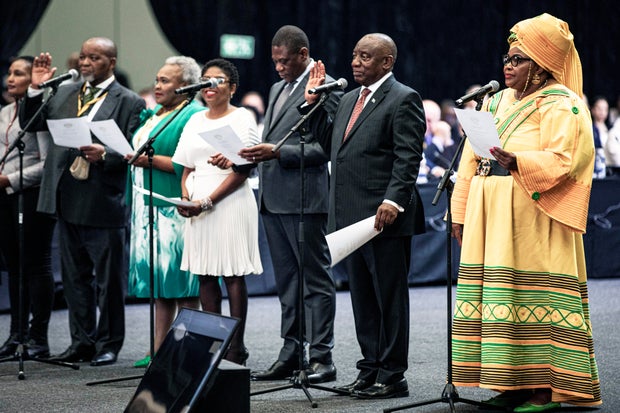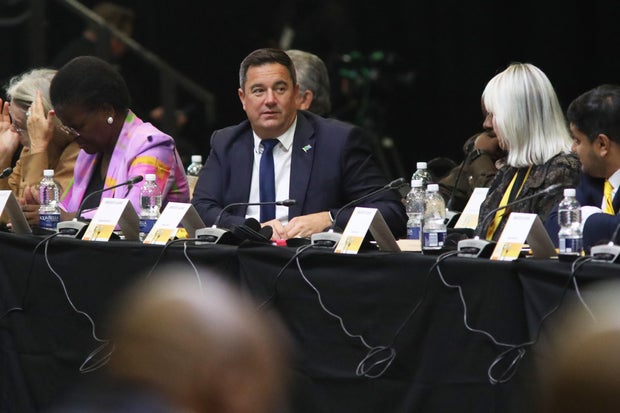Johannesburg — After talks that continued until Thursday night, Friday morning brought the news that South Africa would soon have its first coalition government. Uncertainty has reigned since the late Nelson Mandela’s long-ruling African National Congress party lost majority in May national elections.
The ANC said on Thursday it would partner with other political parties to form a Government of National Unity – similar to the path Mandela himself chose after the historic elections that brought him to power as the country’s first democratically elected president in 1994. But who would join? the ANC, now led by current President Cyril Rampaphosa, remained obscure until late Friday morning.
In the end, it was not an agreement for a unity government that emerged, but rather a coalition between the ANC and its biggest rivals, the Democratic Alliance party, as well as several other smaller parties that received a much smaller share of May’s vote. The deal was announced on Friday morning as new and returning lawmakers were being sworn into their seats in parliament.
PAP/Getty
The DA agreed to support the election of Ramaphosa for a second term as president, with an ANC leader as Speaker of Parliament and a DA leader as Deputy Speaker. The rest of the details and ministerial positions were still being finalized.
Previously, the ANC had announced that several parties would form a national unity government, including the Democratic Alliance and the Economic Freedom Front, which led some critics to say that the ANC was working with “white parties”. EFF leader Julius Malema, whose party won 9% of the vote, had previously said his party would not join a unity government with the former “oppressive parties”.
The controversy was addressed on Thursday night by ANC secretary-general Fikile Mbalula, who told journalists: “It doesn’t matter to us whether the cat is black or white… The question is how we can move the country forward. ”
Dwayne Sr./Bloomberg/Getty
The DA, the main opposition party, was favored by South African business leaders and won the second highest number of votes nationally, at close to 22%. Its leadership had previously said it would not join any unity government that included the EFF.
Former president Jacob Zuma’s MK Party, a fierce critic of Ramaphosa who came in a surprise third place in last month’s national elections, said it would not work with the ANC if the incumbent remained its leader.
Zuma has a long history of acrimony with Ramaphosa, who was elected president of the ANC after this deposed Zuma as a member for multiple accusations of corruption, which he always denied, claiming to be a victim of unfair persecution.
bol co
jogo de terror online
novela sbt ao vivo
wishlist
musica terra seca
taça png
























